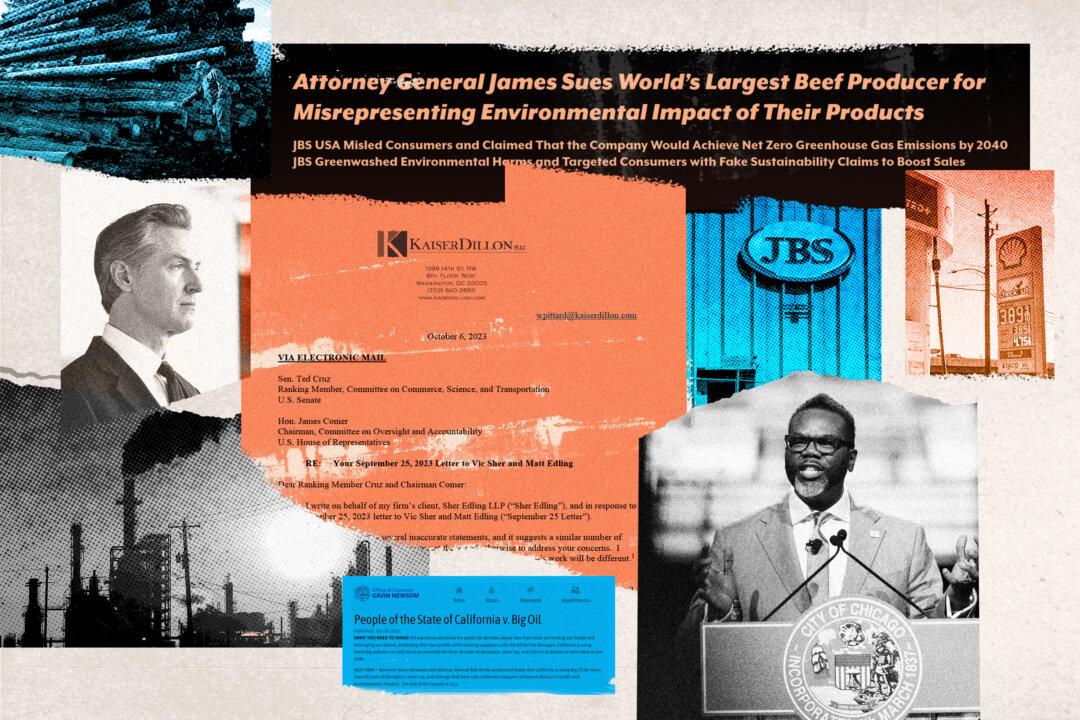A recent barrage of lawsuits is targeting fuel and food companies for their alleged contribution to global warming.
States, cities, and counties “are bringing these cases with help from white-shoe law firms, funded by nonprofit money from Big Philanthropy,” according to a recent report by Capital Research.





